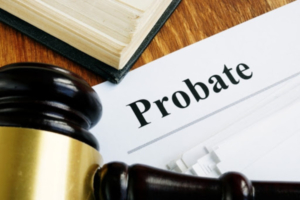
The probate process can take quite a bit of time and eat away at the estate’s value through legal fees and court costs. Thus, for many, it is worth taking a detailed look into the Florida probate rule to see whether there may be an alternative.
The Florida Probate Rule: When Probate Is Necessary
Florida probate law provides a few “shortcuts” that can simplify the probate process or even eliminate the need for probate altogether. However, these are not available in all circumstances. Typically, the greater the value of an estate, the more likely probate will be necessary. The two most important alternatives to probate are disposition without administration and summary probate. Below is a brief overview of each. However, those with additional questions should reach out to a dedicated Florida estate planning attorney for assistance.
How Much Does an Estate Have to Be Worth to Qualify for Disposition Without Administration?
Disposition without administration is the simplest way to administer an estate because it avoids the need for probate altogether. While every situation is unique, disposition without administration could take effect in as little as 60 days.
There is no set dollar amount that will disqualify an estate for disposition without administration. However, this process is available only when the value of the property in the estate is less than the deceased’s final expenses. Final expenses can include reasonable medical bills incurred during the last 60 days of the deceased’s life, as well as funeral and burial costs.
Notably, not all of a decedent’s property gets counted when determining eligibility for disposition without administration. The law provides that certain assets are exempt when calculating an estate’s value. These include:
- $20,000 worth of furniture, furnishings, and appliances;
- Up to two of the deceased’s personal motor vehicles; and
- Any amount of money in a qualifying tuition program.
However, there are also a few other limitations. For example, disposition without administration cannot be used if the deceased owned any real estate, regardless of its value.
Disposition without administration is useful in a few situations. For example, if a family member named in the deceased’s will pay for the funeral and burial expenses and is seeking reimbursement for those expenses, disposition without administration will likely be the quickest option to obtain those funds.
Due to its strict requirements, disposition without administration is not frequently used but can save a significant amount of time and expense for those estates that qualify. However, if the value of an estate precludes administration without disposition, summary administration may still be available.
How Much Does an Estate Have to Be Worth to Qualify for Summary Administration?

Summary administration is permitted in two circumstances:
- The value of the estate is less than $75,000, or
- The deceased passed away more than two years ago.
If the deceased passed more than two years ago, their creditors will not be an issue. However, in most cases, a party seeks summary administration within two years of the deceased’s passing. In this situation, the party requesting summary administration must first settle the deceased’s debts. Specifically, Florida probate law requires they “make a diligent search and reasonable inquiry for any known or reasonably ascertainable creditors, serve a copy of the petition on those creditors, and make provision for payment for those creditors to the extent that assets are available.” In other words, until creditors are satisfied, summary administration is not available.
When it comes to calculating an estate’s value, a few types of assets fall outside the estate and do not need to be considered. For example, the following are all non-probate assets:
- Joint bank accounts;
- Joint investment accounts;
- Property with a named beneficiary;
- Jointly owned property;
- Assets contained in a revocable or living trust;
- Accounts with a Payable on Death (POD) or Transfer on Death (TOD) designation; and
- Retirement accounts.
Another important thing to consider when thinking about summary administration is the Florida homestead law. A homestead is a primary residence on no more than one-half of an acre. Florida law is unique in how it treats homesteads, and it is crucial to understand Florida homestead law when considering summary administration.
Under the Florida Constitution, a homestead automatically passes to the deceased’s heirs. And while a homestead does not count towards the $75,000 limit for summary administration, other complications can arise when passing ownership of a homestead. Thus, some judges require a party seeking summary administration to also deal with any homestead issues at the same time.
Formal Probate Administration
Any estates valued over $75,000 will not qualify for either of the “shortcuts” mentioned above and will need to proceed through the formal probate administration process. Of course, sometimes this is unavoidable. However, for planning purposes, there are certain steps that families can take to avoid probate in the future. For example, by meeting with an experienced Florida estate planning lawyer, families can restructure, transfer, and re-title assets to exclude them from the eventual estate, simplifying the process in the future.
Contact a Dedicated Florida Estate Planning and Probate Attorney Today
If you have a loved one who recently passed and you are unsure how to proceed with the administration of their estate, contact the Florida estate planning lawyer at Beller Law, P.L. At Beller Law, P.L. we have over three decades of hands-on experience helping clients through the probate process, avoiding it whenever possible. We work with individuals and families of varying net worth. Whether you are dealing with a modest estate or a multi-million-dollar estate, we can help. To learn more and schedule a consultation with one of our compassionate Jacksonville estate planning legal team, call us or contact us through our online form.
